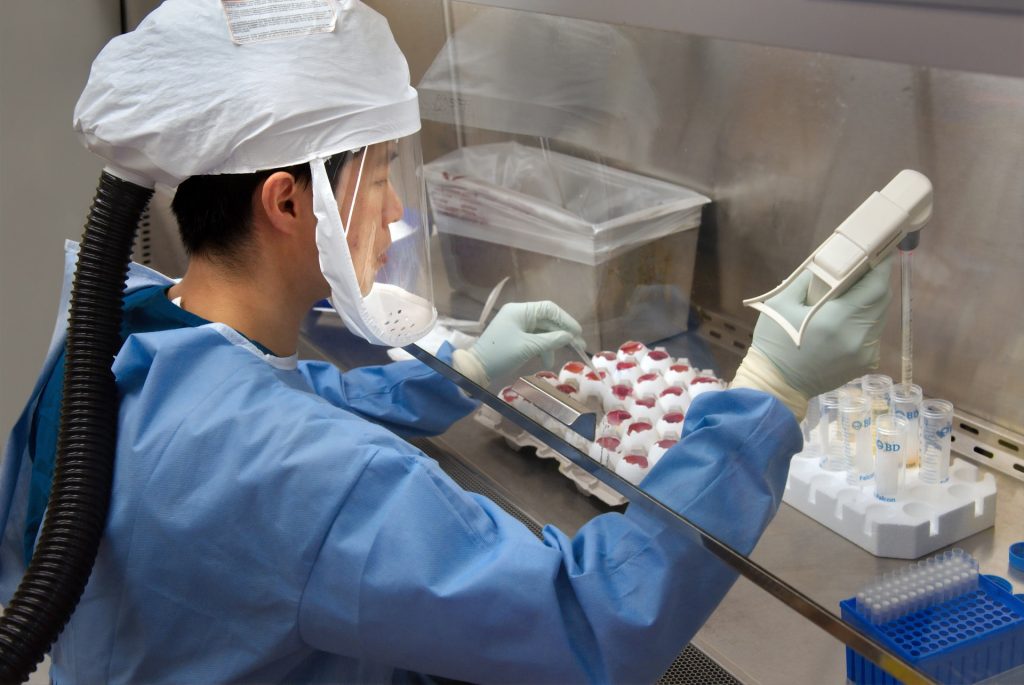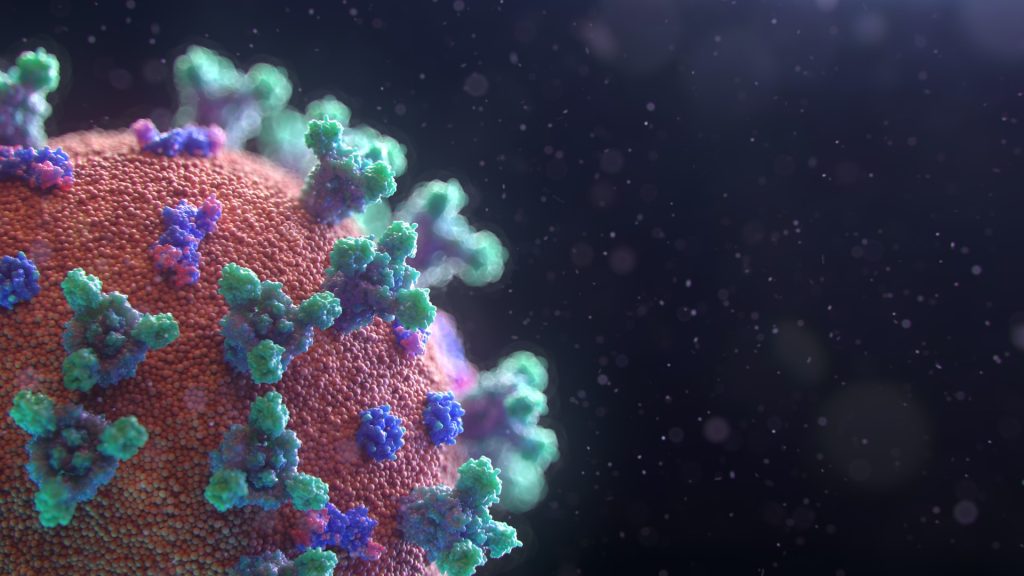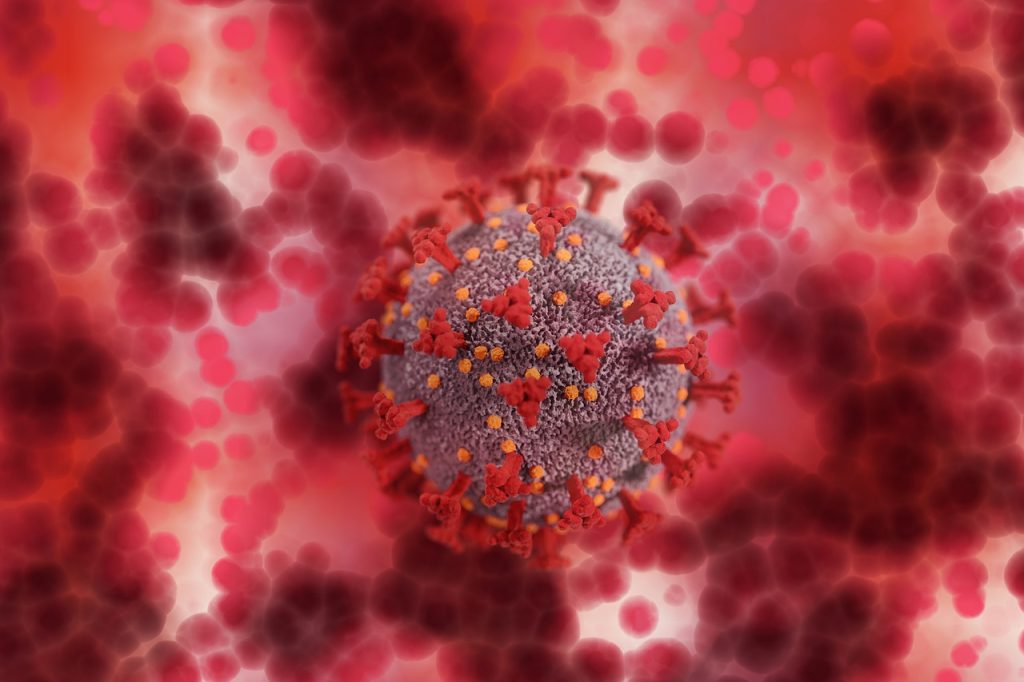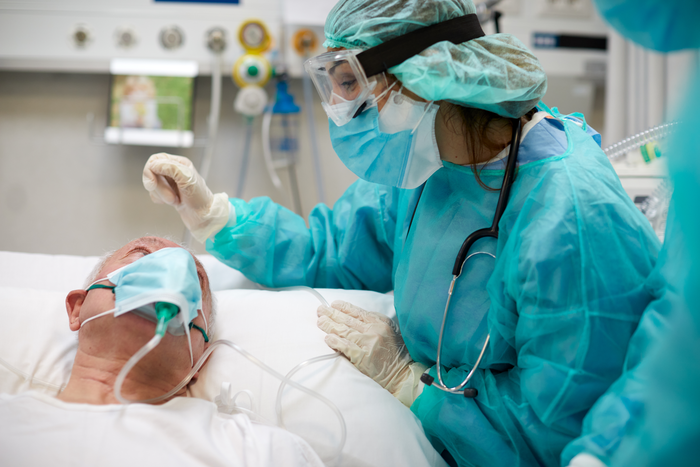Cystic Fibrosis Drug Improves Outcomes in Severe COVID Pneumonia

In a new clinical trial, a drug commonly used to treat cystic fibrosis, dornase alfa, improved outcomes for patients with severe COVID pneumonia. The results, published in the journal eLife, also suggest that the drug could be used to treat other respiratory infections.
The study, found that the drug reduced hyper-inflammation in COVID pneumonia patients, which occurs when the body’s immune system reacts too strongly and can lead to tissue damage and death.
The next step will be to conduct larger clinical trials, with the ultimate goal of approving dornase alfa for wider use. As well as COVID, dornase alfa has the potential to treat other respiratory infections such as those caused by influenza or bacterial pneumonia, and even other lung diseases such as pulmonary fibrosis.
Since the beginning of the COVID pandemic, the proportion of SARS-CoV-2 infections that result in death has fallen, partly due to increased immunity from prior infection or vaccination, as well as improved treatments such as the steroid dexamethasone, which helps to tackle the hyper-inflammation that was a key factor in many COVID deaths. But this treatment isn’t suitable for some patients and is not always successful in severe cases.
In this study, researchers from UCL, UCLH and the Francis Crick Institute set out to assess whether dornase alfa could be used to improve outcomes for patients admitted to hospital with severe COVID pneumonia who required oxygen.
Out of a total of 39 participants, 30 were randomised to receive twice-daily treatment with nebulised dornase alfa in addition to best available care (BAC) which included dexamethasone, with nine patients randomised to BAC only.
Patients treated with dornase alfa had a 33% reduction in systemic inflammation on top of the reduction provided by dexamethasone, as measured by C-reactive protein (CRP) levels in the blood over seven days or until they were discharged from hospital.
Dr Venizelos Papayannopoulos, senior author of the study from the Francis Crick Institute, said: “Dexamethasone has been highly successful in treating patients with severe COVID-19 pneumonia and is now standard care in the UK. But it isn’t suitable for some patients, such as those with diabetes, those that do not require oxygen, and in very severe cases it may not be enough. Dornase alfa can be used to treat a wider variety of patients and gets right to the heart of the inflammatory response. Based on these results, we think it will be a valuable tool for tackling severe COVID-19 illness.”
Patients treated with dornase alfa were also more likely to need less oxygen and be discharged sooner compared to patients who received BAC. These additional benefits could help to free up beds and resources in the UK’s busy hospitals.
The next step will be to conduct larger clinical trials to ensure dornase alfa is safe and effective for treating severe COVID pneumonia. There is also potential for the drug to be trialled for other respiratory infections and conditions, such as acute exacerbations of pulmonary fibrosis, where inflammation of already scarred lung tissue affects how well oxygen can be absorbed.
Source: University College London







